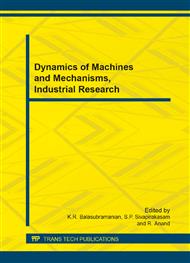p.1607
p.1612
p.1617
p.1622
p.1627
p.1632
p.1638
p.1642
p.1647
Influence of Fuel Injection Timing on the Performance and Emission Characteristics of a Diesel Engine Fueled with Jatropha Methyl Ester-Tyre Pyrolysis Oil Blend
Abstract:
Early investigation on utilization of Jatropha methyl ester (JME) tyre pyrolysis oil (TPO) blends in a single cylinder, constant speed, direct injection diesel engine revealed that a blend of 80% JME and 20% TPO referred to as JMETPO20 blend give a better performance and lower emissions compared to other Jatropha methyl ester tyre pyrolysis oil (JMETPO) blends. In this study, for further improvement on performance and emission characteristics, and also to find optimum injection timing for blend, experiments have been carried out with varying the injection timing. Tests have been conducted under two advanced and two reratarded injection timings in addition to the original injection timing of 23 °CA bTDC. The experimental test results showed that for the JMETPO20 blend at advanced injection timing of 24.5 °CA the brake thermal efficiency increased by about 2.21%, compared to the result of original injection timing at full load. For the JMETPO20 blend at advanced injection timing of 24.5 °CA the nitric oxide and carbon dioxide emission increased by about 4.56% and 11.91% respectively at full load, and the carbon monoxide emission decreased by about 11.21%, compared to that of original injection timing.
Info:
Periodical:
Pages:
1627-1631
Citation:
Online since:
July 2014
Authors:
Price:
Сopyright:
© 2014 Trans Tech Publications Ltd. All Rights Reserved
Share:
Citation:


